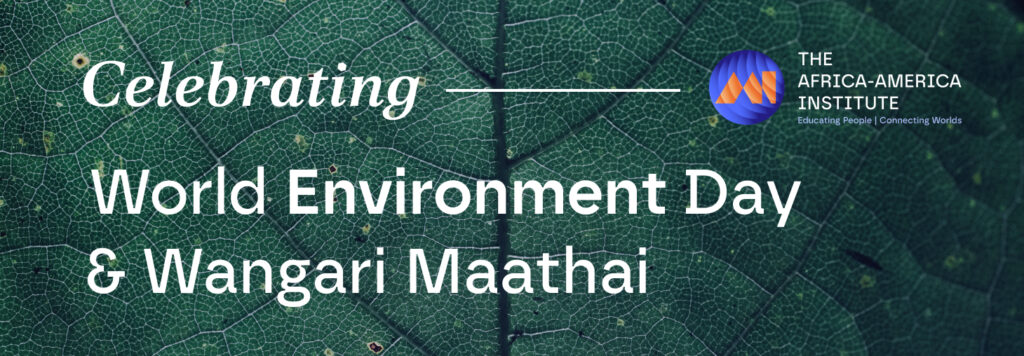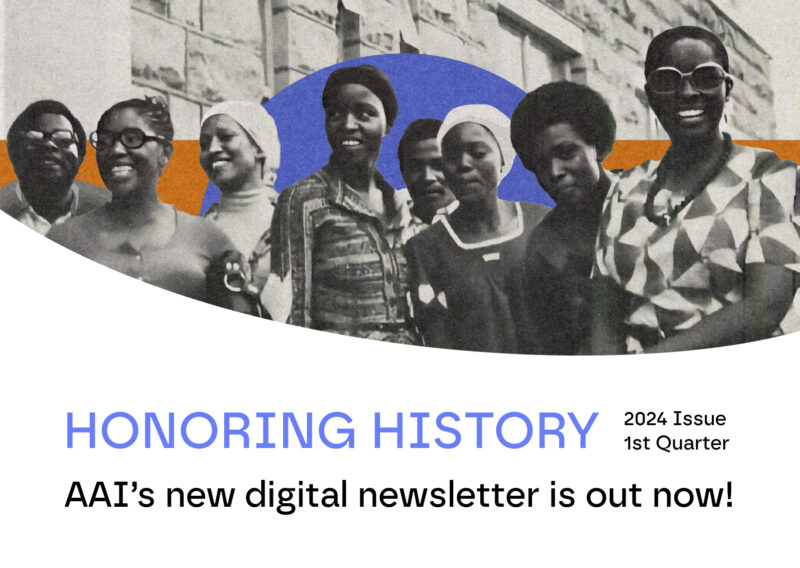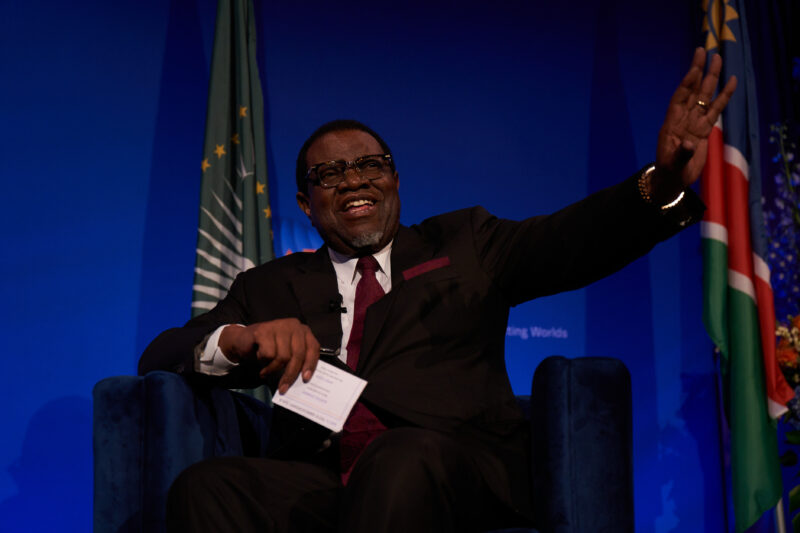Celebrating World Environment Day & Wangari Maathai

“Activities that devastate the environment and societies continue unabated. Today we are faced with a challenge that calls for a shift in our thinking, so that humanity stops threatening its life-support system. We are called to assist the Earth to heal her wounds and in the process heal our own – indeed, to embrace the whole creation in all its diversity, beauty and wonder. This will happen if we see the need to revive our sense of belonging to a larger family of life, with which we have shared our evolutionary process.
In the course of history, there comes a time when humanity is called to shift to a new level of consciousness, to reach a higher moral ground. A time when we have to shed our fear and give hope to each other.
That time is now.“
-Wangari Maathai
The urgency of this message has only accelerated since Wangari Maathai delivered it in her 2004 Nobel Prize acceptance speech. Thirty years had passed since the launching of the Greenbelt Movement on World Environment day in 1977. A movement that began as a way to address what rural women identified as pressing basic needs—firewood, clean drinking water, balanced diets, shelter and income— rapidly evolved from planting trees to a broader focus on democracy and peace. Citizen’s education and consciousness-raising to help rural people understand the national and global economic structures that sustained their impoverishment and realize the knowledge and skills they themselves possessed to resist and struggle against oppression became integral goals.
Along with being the first woman from either East or Central Africa to earn a doctoral degree and a renowned environmental and political activist, Maathai was a woman of the people. She understood the history of injustices that created and continue to sustain the climate change crisis, and she dedicated her life to working with rural women to improve conditions of living for everyone.
We at AAI are proud of Maathai’s accomplishments especially as they were facilitated with an AAI scholarship. However, we celebrate her—during World Environment Day and always—for her holistic vision and contributions to the wellbeing of Earth and humanity as one being.
In memory of Wangari Maathai we invite you to learn how early human beings who occupied the geographical space that we now refer to as “Africa” survived radical climate change by embracing cooperation as a mode of survival, political philosophy, and cultural value. This webinar on “Human Survival and Climate Change: Lessons from Africa’s Deep Past” was originally featured as part of our 2023 virtual conference.



